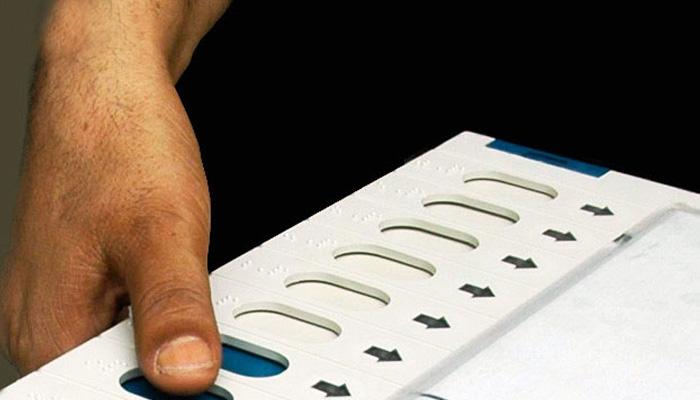[ad_1]
In a revelation that has sent shockwaves across political and administrative circles, a Pakistani national deported via the Attari-Wagah border has publicly claimed that he cast his vote in the Jammu & Kashmir Assembly elections. The viral video of his media interaction at the border has prompted immediate action from the authorities, with a formal investigation and FIR registration now underway.
Deportation Drama Turns Into Electoral Controversy
On Wednesday, during routine deportation proceedings at the Attari-Wagah border, a man identified as Osama, a Pakistani national who had been residing in North Kashmir’s Uri region for 17 years, shocked onlookers by claiming that he had not only managed to get his name on the Indian electoral roll but had also voted in the elections.
His statement, captured on video during his interaction with the media, quickly went viral on social media platforms, triggering public outrage and calls for accountability from electoral authorities.
District Election Officer Responds Swiftly
Responding to the viral video, the District Election Officer (DEO) of Baramulla district promptly took note of the incident. The video allegedly shows Osama declaring that he was included in the electoral roll of the 09-Uri Assembly constituency, despite not being an Indian citizen.
In an official statement, authorities confirmed that the DEO has directed the Electoral Registration Officer (ERO) of the concerned constituency to initiate an inquiry and take appropriate action in accordance with the Representation of the People Act, 1950.
FIR Ordered Under Election Law Violation
Following preliminary verification of the video content, a detailed investigation has been ordered, and the DEO has instructed the immediate registration of an FIR (First Information Report) against the individual and any others who may have facilitated the alleged enrollment and voting.
Authorities emphasized that such incidents pose a direct threat to the integrity of the electoral process and cannot be taken lightly. Legal action will also extend to any government officials or intermediaries found complicit in the unauthorized inclusion of a foreign national in the electoral rolls.
Representation of the People Act, 1950: What It Says
The Representation of the People Act, 1950, strictly governs the registration of voters in India. Only Indian citizens above the age of 18 are eligible to vote. Any deviation or fraudulent inclusion, especially involving foreign nationals, constitutes a serious offense punishable under Indian law.
The alleged breach not only violates electoral rules but also raises national security concerns, especially in a sensitive border region like Jammu and Kashmir, where electoral integrity is closely monitored.
Long-Term Stay Raises Questions
According to his own admission, Osama had been living in Uri, Jammu & Kashmir, for the past 17 years. His extended stay and access to public services raise serious questions about documentation loopholes, local administrative oversight, and the possible misuse of the voter registration system.
His claim of having cast a vote indicates that he may have had access to a Voter ID card or Aadhaar card, which would require additional verification, especially in the context of border-area sensitivities.
Social Media Amplifies the Controversy
The incident gained national attention after the video went viral, with citizens questioning the credibility of electoral mechanisms, especially in conflict-prone areas. The role of social media in exposing governance lapses once again came to the forefront, pushing authorities to respond swiftly.
Prominent voices on various platforms are demanding a comprehensive audit of electoral rolls in Jammu & Kashmir, particularly in regions like Uri, which have a history of border infiltration and demographic complexity.
Political Ramifications and Public Reaction
Political parties across the spectrum have weighed in, with opposition leaders calling for an independent inquiry. They argue that such a lapse could potentially be systemic rather than isolated, and that it undermines the democratic foundation of India.
Meanwhile, public reaction remains strong, with citizens voicing concern over national security risks, the credibility of voter databases, and the efficiency of identity verification mechanisms at the grassroots level.
Need for Electoral Reforms and Vigilance
This incident has reignited calls for electoral reforms, particularly in areas vulnerable to cross-border migration. Authorities may now consider implementing more stringent verification procedures, regular audits of voter lists, and coordination with security agencies to ensure only eligible citizens are allowed to vote.
Enhanced use of biometric verification, centralized voter databases, and improved training for Electoral Registration Officers may also be part of the solution to prevent future occurrences of this kind.
The case of a Pakistani national allegedly casting a vote in Jammu & Kashmir is not just a matter of administrative oversight—it is a stark reminder of the fragility of electoral systems, especially in sensitive border regions. As the investigation unfolds, it will be crucial for authorities to not only fix accountability but also take proactive steps to safeguard the sanctity of democratic processes.
The FIR and subsequent inquiry should serve as both a deterrent and a blueprint for reform, ensuring that every vote cast in India reflects the true will of its citizens—and only its citizens.
[ad_2]
















